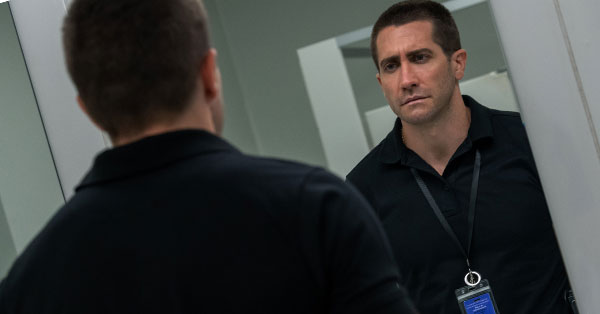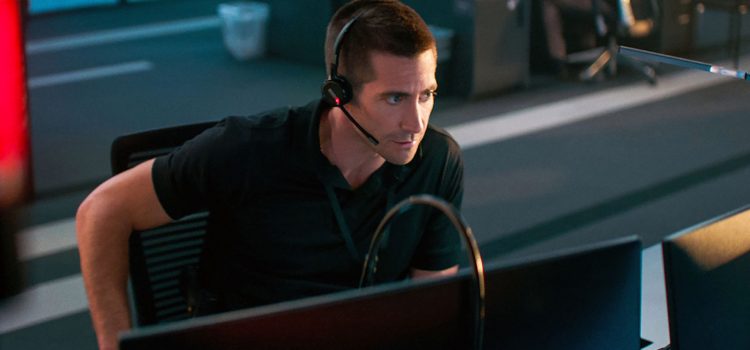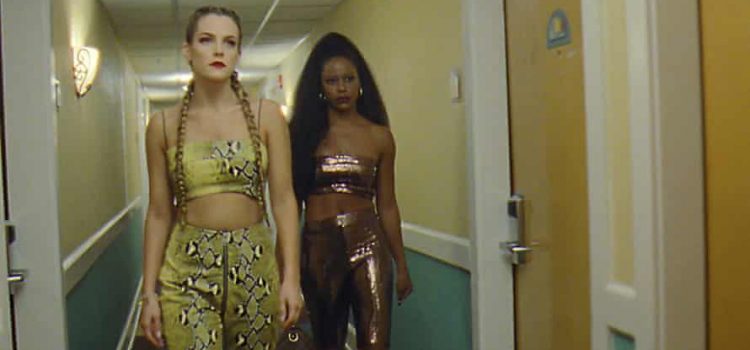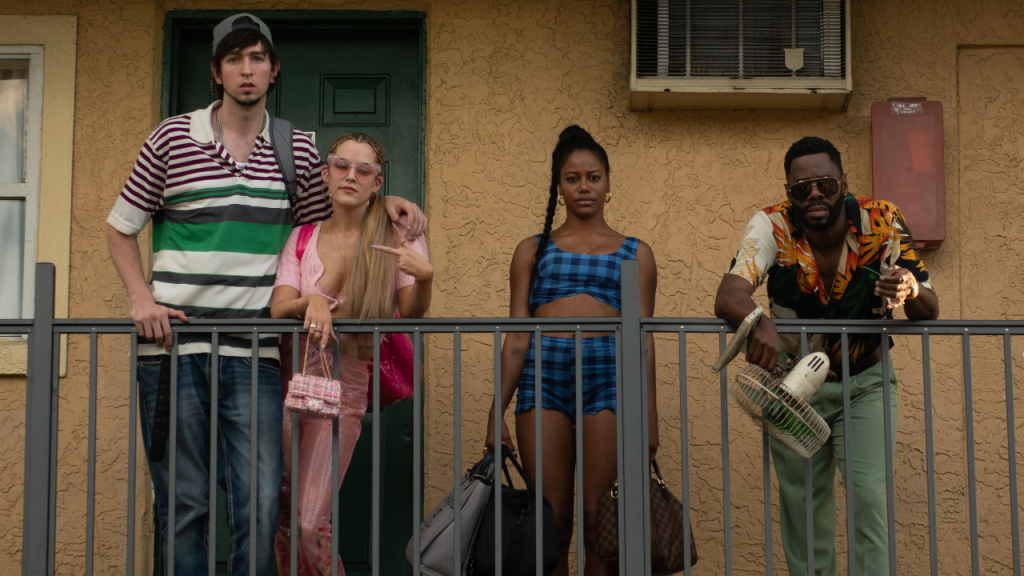By Lynn Venhaus
An American remake that is as tense and gripping as the 2018 Danish original, “The Guilty” will surprise with its carefully crafted twists in a story you think you have figured out – but assumptions are a dangerous tool.
“The Guilty” takes place over the course of a single morning in a 911 dispatch call center. Call operator Joe Baylor (Jake Gyllenhaal) tries to save an emergency caller in grave danger, but he soon discovers that nothing is as it seems, and facing the truth is the only way out.
Gyllenhaal bought the rights to the acclaimed foreign language film, which won the Audience Award at the Sundance Film Festival in 2018 and was Denmark’s entry for the Oscars (not nominated; “Roma” won) three years ago. (The original is currently streaming on Hulu.)
As a producer, he cast himself as the lead, a demoted police officer working as a 911 dispatcher, and assembled a crackerjack team.
The creative crew – including screenwriter Nic Pizzolatto, of HBO’s “True Detective,” has not changed much, but moved the location from Copenhagen to Los Angeles, where the public safety personnel are involved in quelling wildfires. The call center displays horrific scenes of fire ravaging the landscape on its multi-screens.
Original screenwriters Gustav Moeller, who also directed the 2018 film, and Emile Nygaard Albertsen, had written such a compelling script that it really didn’t need much embellishment. It’s a brilliant example of building tension in a contained area in a race against time.
Above all, the source material illustrated that a rush to judgment is often counterproductive. The takeaway is that one should not jump to conclusions before all the details are available.
One change is the temperament of Baylor. Whereas in the original, Swedish actor Jakob Cedergren played the conflicted police officer with a more stoic demeanor, they both are frustrated by the petty calls clogging up the system and show little patience.
Gyllenhaal is a more intense actor, so he plays Joe with pent-up rage. While he answers routine calls, he seems a little more on edge, his inhaler present. Turns out he has a trial set for the next day, but the charges are not revealed right away. Through his conversations with others, we piece it together.
Emily, a mother of two who is in the process of getting a divorce, calls 911, whispers for help, and Joe soon gets involved in a complicated case. She is frantically voiced by Riley Keough.
Gyllenhaal’s ferocity will sometimes get in the way of cool, calm decision making under pressure. He will say and do things that further heighten a dangerous scenario.
Clearly, his conscience is wrestling with some other issues. As a beat cop, he’s trying to be a hero – is this a means of redemption?
Director Antoine Fuqua knows a thing or two about shooting action films – his collaborations with Denzel Washington include the Equalizer reboot and its sequel, the “Magnificent Seven” remake and Washington’s Oscar winner “Training Day.” He directed Gyllenhaal in “Southpaw.”
Fuqua makes a fairly stagnant situation bristle with adrenaline and anxiety. What kind of peril is Emily in? As the film unfolds, we will be able to see the bigger picture.
The voice work is stellar, as one would expect from the supporting players. Besides Keough being the distraught victim on the other end of the phone, Peter Sarsgaard (Gyllenhaal’s brother-in-law in real life) plays her husband Henry, who is living separately from their family.
Ethan Hawke, an Oscar nominee for “Training Day,” is a police sergeant whose work banter with Joe indicates familiarity. Paul Dano, who directed Gyllenhaal in the underrated “Wildlife,” plays a VIP who is mugged while visiting the City of Angels.
The editing by Jason Ballantine is impressive, and the music score by Brazilian composer Marcelo Zarvos conveys an urgency that increases the helpless feelings coming through the phones.

At a 90-minute runtime, Fuqua keeps it taut, and Gyllenhaal displays the effects of compromised morality that’s a necessary ingredient. While this may not be better than the original – they did this tale first after all, so there is a lack of surprise if you have seen it – but for American audiences experiencing it as new material, this puts the thrill in thriller.
“The Guilty” is a thriller directed by Antoine Fuqua and stars Jake Gyllenhaal. Voice work is by Riley Keough, Peter Sarsgaard, Ethan Hawke and Paul Dano. It is Rated R for language throughout and is 90 minutes. In theatres Sept. 24 and streaming on Netflix Oct. 1.
Lynn’s Grade: B+

Lynn (Zipfel) Venhaus has had a continuous byline in St. Louis metro region publications since 1978. She writes features and news for Belleville News-Democrat and contributes to St. Louis magazine and other publications.
She is a Rotten Tomatoes-approved film critic, currently reviews films for Webster-Kirkwood Times and KTRS Radio, covers entertainment for PopLifeSTL.com and co-hosts podcast PopLifeSTL.com…Presents.
She is a member of Critics Choice Association, where she serves on the women’s and marketing committees; Alliance of Women Film Journalists; and on the board of the St. Louis Film Critics Association. She is a founding and board member of the St. Louis Theater Circle.
She is retired from teaching journalism/media as an adjunct college instructor.



